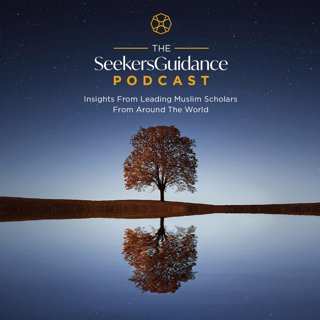
10 Steps to Firm-Footedness in Seeking Knowledge of Fiqh
In this brief podcast, Shaykh Faraz Rabbani provides 10 genuinely useful tips on gaining and retaining a firm grasp of your knowledge of fiqh. See also: “From knowing nothing to becoming a student of ...
24 Jan 201930min

The Blessing of Knowledge, by Shaykh Faid Muhammad Said
Allah has promised that He will facilitate the path to Jannah for anyone who embarks on the journey to seeking knowledge. Imagine being in the company of the “pious ones” in the Eternal Garden. Can yo...
24 Jan 201915min

Appreciating the Blessing of the Prophet (peace be upon him)- Shaykh Faraz Rabbani
In this Friday sermon, given at a historic mosque in Cape Town, Shaykh Faraz Rabbani encourages us to be more appreciative of the greatest blessings we possess: our vast of knowledge of the Prophet Mu...
11 Jan 201916min

Purifying the Hearts- Ustadh Amjad Tarsin
In a Friday sermon given in Cape Town, Ustadh Amjad Tarsin reminds us about the relationship between the believers and the state of their hearts, to their connection with Allah. He quotes the hadith, ...
11 Jan 201922min

The Righteous Scholar A Person of Knowledge and Action – Shaykh Faraz Rabbani
The Mahabbah Foundation of Cape Town, South Africa, has organized a tour featuring Habib Umar bin Hafiz and a number of other scholars. You can find the full program with times and dates on their Face...
9 Jan 201918min

Begin Right, Begin with Light: New Year Reflection for 2019 from Shaykh Faraz Rabbani
Start your year with reflecting on how to see things around you for what they are. Start to look at things differently with the eye of faith, cognizant of divine manifestations in all their ways. Know...
1 Jan 20199min

Significance of the Adhan and its Being a Metaphor and Reminder of Life and Death – Shaykh Asim Yusuf
In this Friday khutba Dr. Asim Yusuf begins by giving a brief history how the adhan came about to be the call to prayer for the Muslims. The companions dreamt the words of the adhan. One should reflec...
15 Dec 201821min

Reflect on the Signs Around You – Shaykh Faraz Rabbani
In this Friday khutba Shaykh Faraz begins by reminding the believers to appreciate the signs around one. There are verses about those signs that the Prophet (peace and blessings be upon him) would rec...
11 Dec 201828min





















